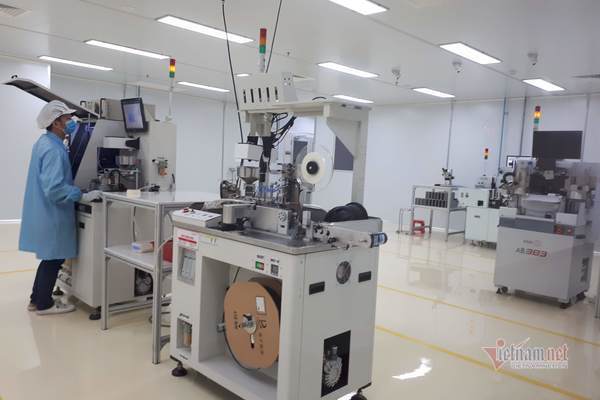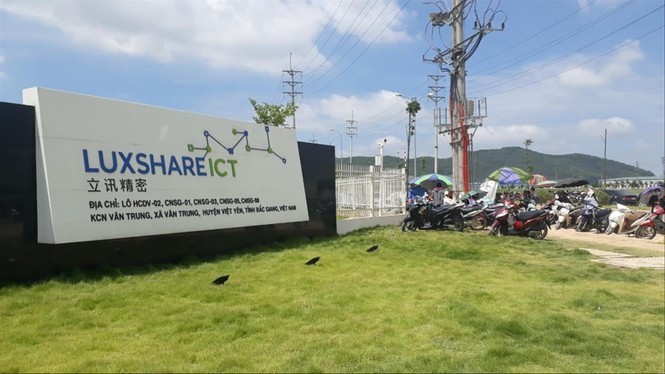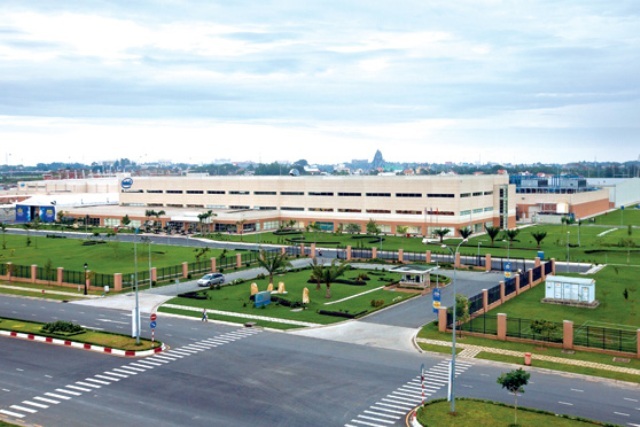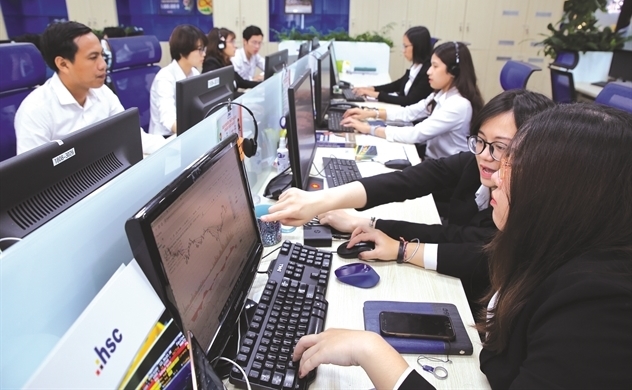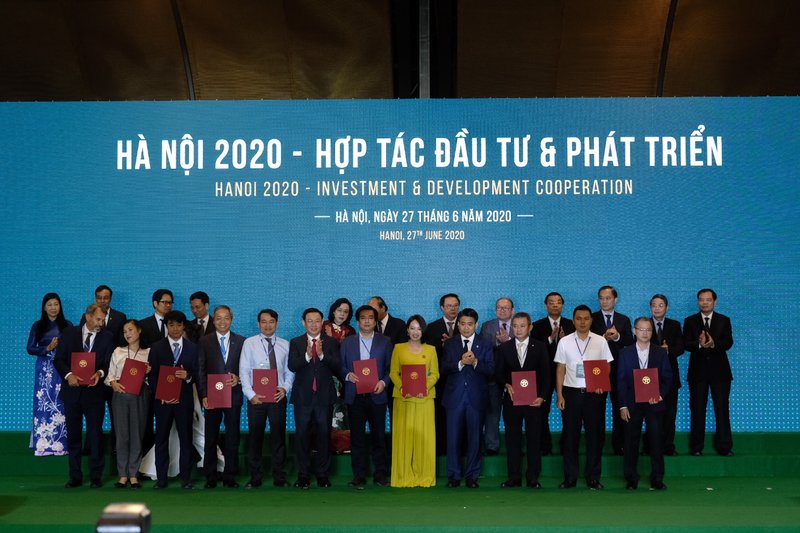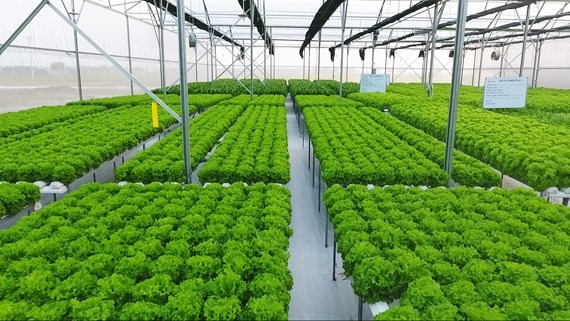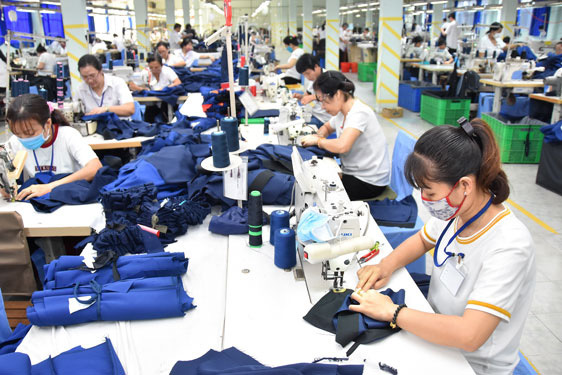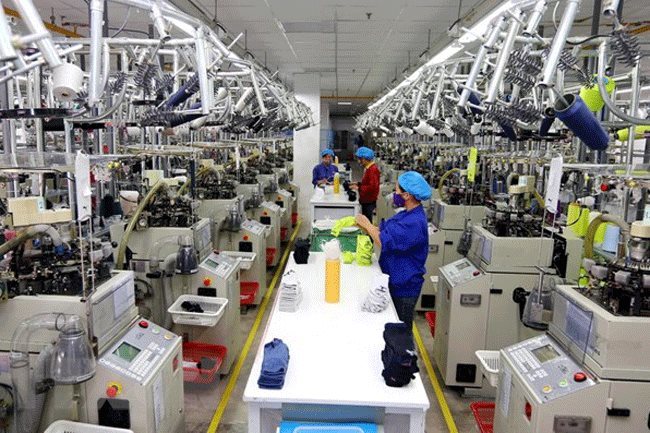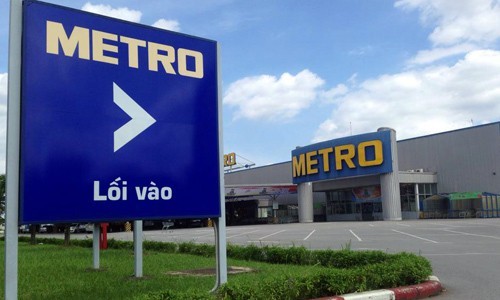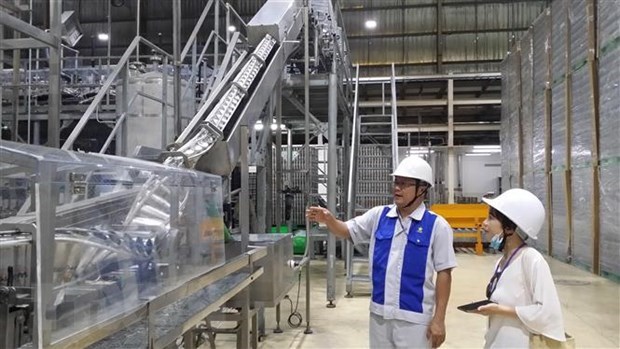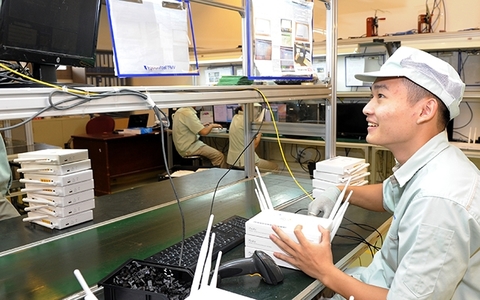- © Copyright of Vietnamnet Global.
- Tel: 024 3772 7988 Fax: (024) 37722734
- Email: evnn@vietnamnet.vn
FDI
Update news FDI
Big investors pouring money into Vietnam's manufacturing industry
 Instead of injecting money into the real estate or service sector which allows profit after a short time, Vietnam’s most powerful corporations are investing in the processing and manufacturing industry.
Instead of injecting money into the real estate or service sector which allows profit after a short time, Vietnam’s most powerful corporations are investing in the processing and manufacturing industry.
EVFTA, plus Vietnam's COVID-19 success, to help attract more FDI: experts
 The country's great achievement of containing the spread of COVID-19, plus the EVFTA (EU-Vietnam Free Trade Agreement), will help Vietnam attract more FDI.
The country's great achievement of containing the spread of COVID-19, plus the EVFTA (EU-Vietnam Free Trade Agreement), will help Vietnam attract more FDI.
Strong reform needed to attract high-quality FDI
 In order to attract high-quality FDI capital from the US, Vietnam needs to commit to strong reform, analysts say.
In order to attract high-quality FDI capital from the US, Vietnam needs to commit to strong reform, analysts say.
Vietnam hopes to attract huge capital as central banks print $6 trillion
 Experts say Vietnam has the opportunity to attract more foreign portfolio investment as central banks are launching $6 trillion in quantitative easing programs in 2020.
Experts say Vietnam has the opportunity to attract more foreign portfolio investment as central banks are launching $6 trillion in quantitative easing programs in 2020.
More foreign investment inflows into Vietnam
The Sino-American trade war together with supply chain disruptions due to the novel coronavirus pandemic has prompted many an investor to plan to relocate their production facilities in order to reduce their reliance on China.
It's matter of time more European investments will come to Vietnam
Representatives of European organizations explained to Hanoitimes what the future holds for Vietnam–EU business cooperation on the sidelines of the “Hanoi 2020 – Investment and Development Cooperation” conference on June 27.
Hanoi offers good opportunities for high-tech agriculture for investors
A number of high-tech agricultural projects have been proposed in Hanoi, a trend encouraged by the recent Hanoi investment promotion conference.
Doing business with US: preparing thoroughly, giving specific offers
 The government of Vietnam needs to improve the business environment and transport infrastructure, in addition to simplifying administrative procedures, to attract the expected new FDI 'wave'.
The government of Vietnam needs to improve the business environment and transport infrastructure, in addition to simplifying administrative procedures, to attract the expected new FDI 'wave'.
Vietnam lures US$6 billion FDI into industrial parks
Nearly US$6 billion in foreign direct investment was poured into Viet Nam’s industrial parks (IPs), processing zones and economic zones (Ezs) in the first half of the year, according to the Ministry of Planning and Investment (MPI).
Vietnam seeks quality FDI from EU
Vietnam has undergone profound changes since first opening its doors to FDI more than 30 years ago.
Vietnamese businesses burdened with taxes, FIEs at ease with tax exemptions
 Studies have found that Vietnam’s taxation system offers many incentives to foreign invested enterprises (FIEs), but puts an increasingly heavy burden on Vietnamese enterprises and people.
Studies have found that Vietnam’s taxation system offers many incentives to foreign invested enterprises (FIEs), but puts an increasingly heavy burden on Vietnamese enterprises and people.
FDI inflows drop 15.1 percent year on year in first half
Vietnam recorded a year-on-year decrease of 15.1 percent in foreign direct investment (FDI) inflows to 15.67 billion USD as of June 20, according to the Ministry of Planning and Investment (MPI).
Hanoi attracts US$17.6 billion for 229 projects
Hanoi is going to present investment certificates for 229 projects with a total value of US$17.6 billion and sign 38 memoranda of understanding worth a combined US$28.6 billion, according to the Tuoi Tre Online website.
Climbing the value chain to maximise investment
In general, foreign investors are seeking safe, stable investment environments with established real estate market practices, rule of law, and structured land ownership, with available financial support from banks.
Evaluating the regionwide race for overseas investment
Currently, there is a movement of foreign direct investment (FDI) capital flow from China to other countries, especially in the ASEAN region.
Experts concerned as Chinese buy more industrial properties
 Experts warned that Chinese investors may flock to Vietnam to buy industrial zones (IZs) through merger and acquisitions (M&As) to prepare to receive an expected wave of foreign direct investment (FDI).
Experts warned that Chinese investors may flock to Vietnam to buy industrial zones (IZs) through merger and acquisitions (M&As) to prepare to receive an expected wave of foreign direct investment (FDI).
Hanoi receives 36 proposals for investment cooperation worth $26b
The capital city of Ha Noi as of Monday received 36 proposals for memorandums (MoU) of understanding for investment cooperation, which were estimated to be worth more than US$26 billion in total.
Europe and Vietnam draw ties together at time of dire need
The overwhelming positive vote of the Vietnamese National Assembly on the EU-Vietnam Free Trade Agreement (EVFTA) and Investment Protection Agreement (EVIPA) confirms the strong Vietnamese commitment
FDI into electronics should promote local companies
The electronic industry of Vietnam is heavily dependent on FDI.
Vietnam warned of troublemaking transshipment from China, S.Korea to US
Vietnam should take stronger measures related to origin of goods and products to avoid risks of lawsuits or being taken advantage of by other countries to evade US import tariffs.
